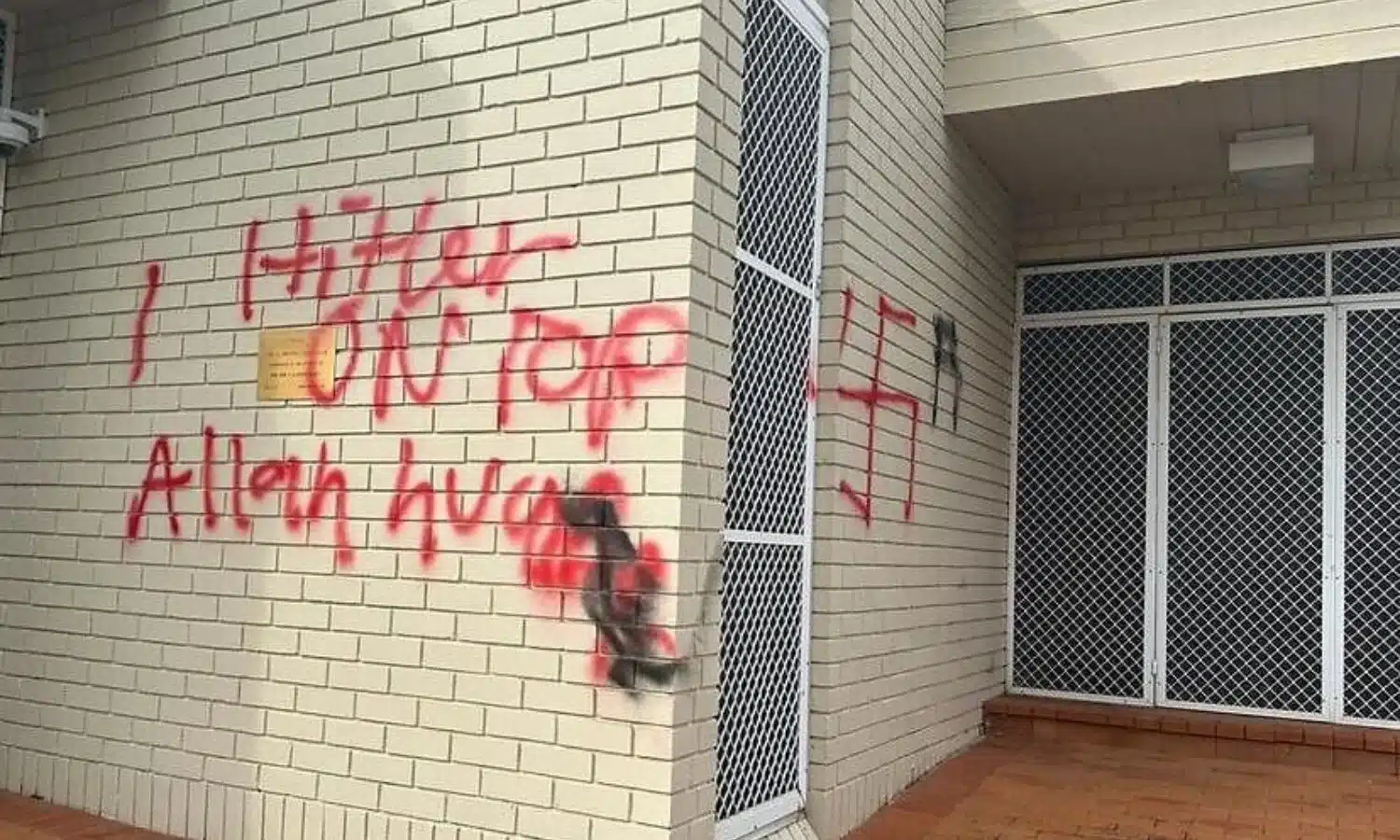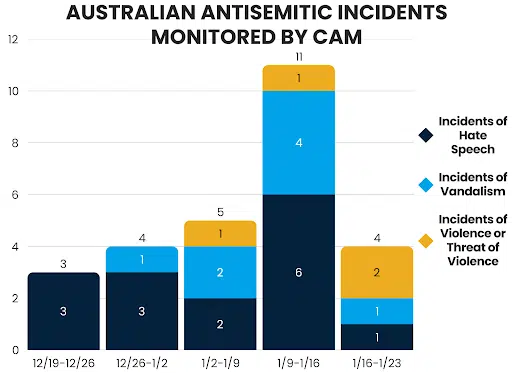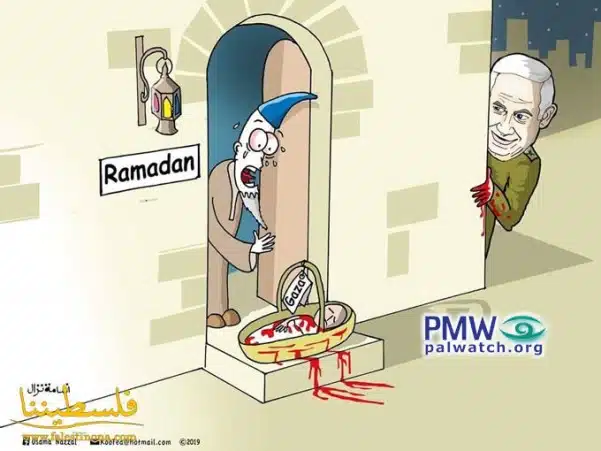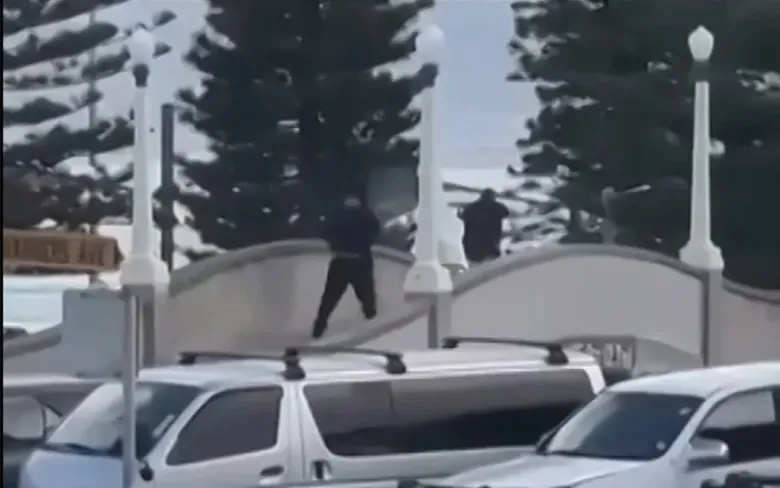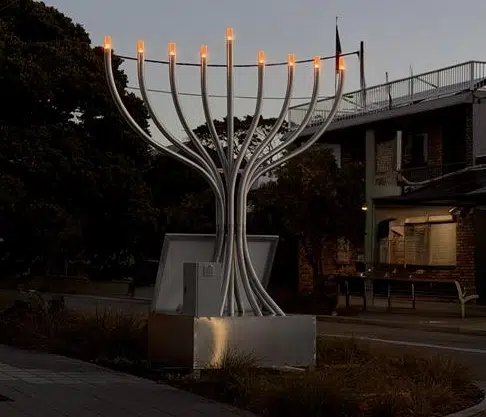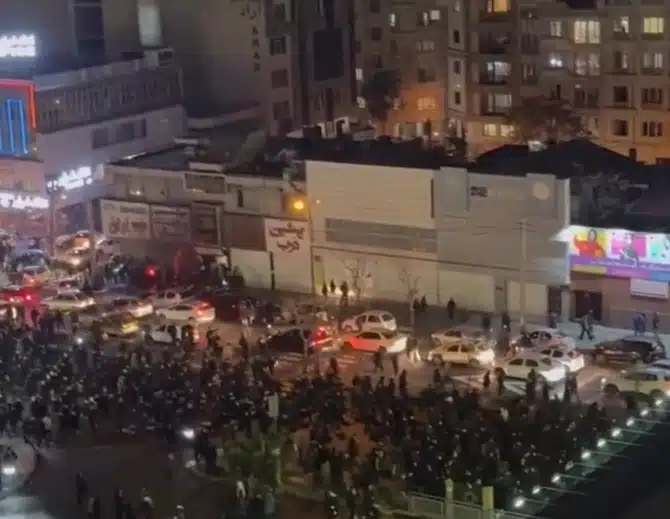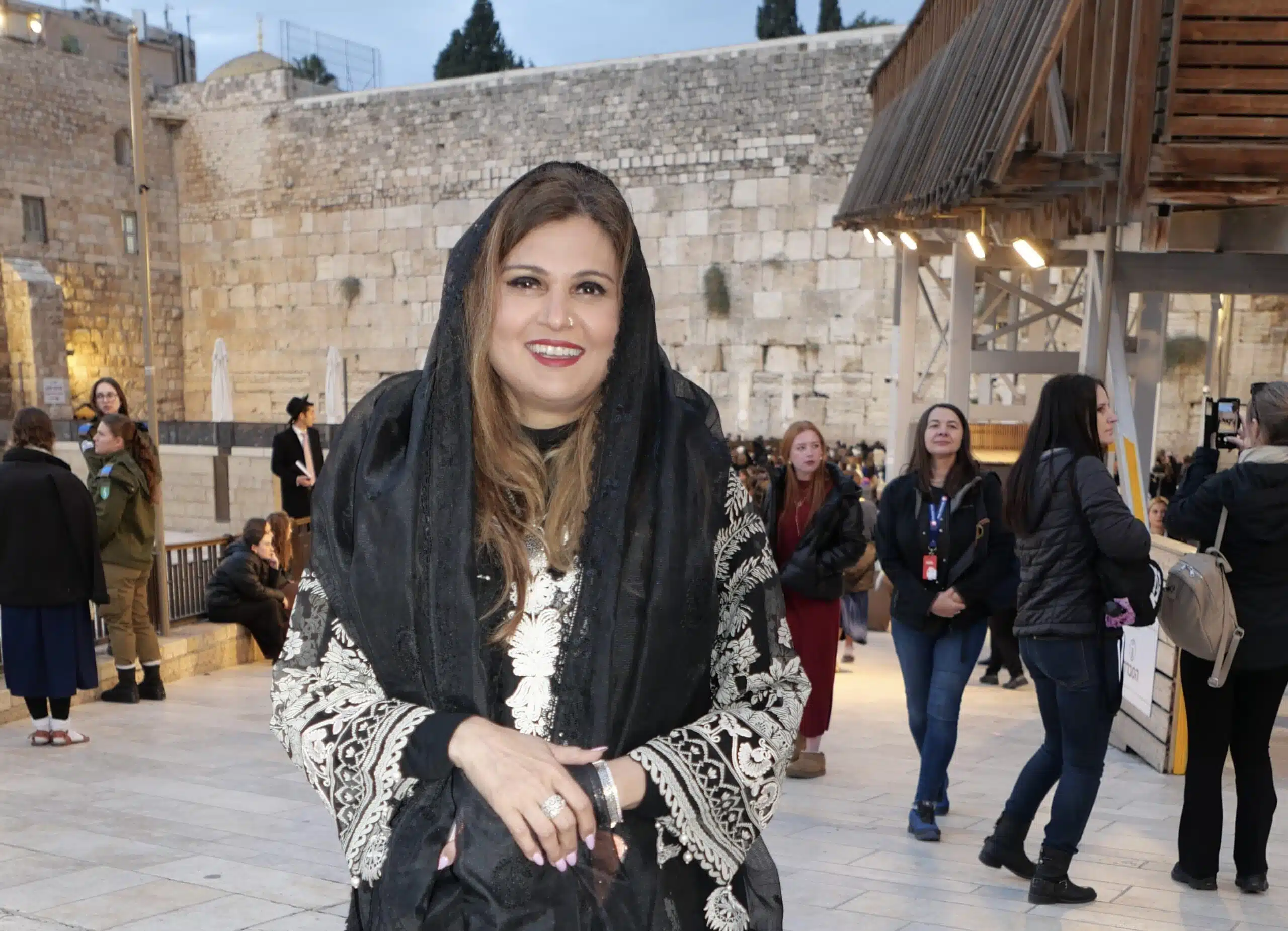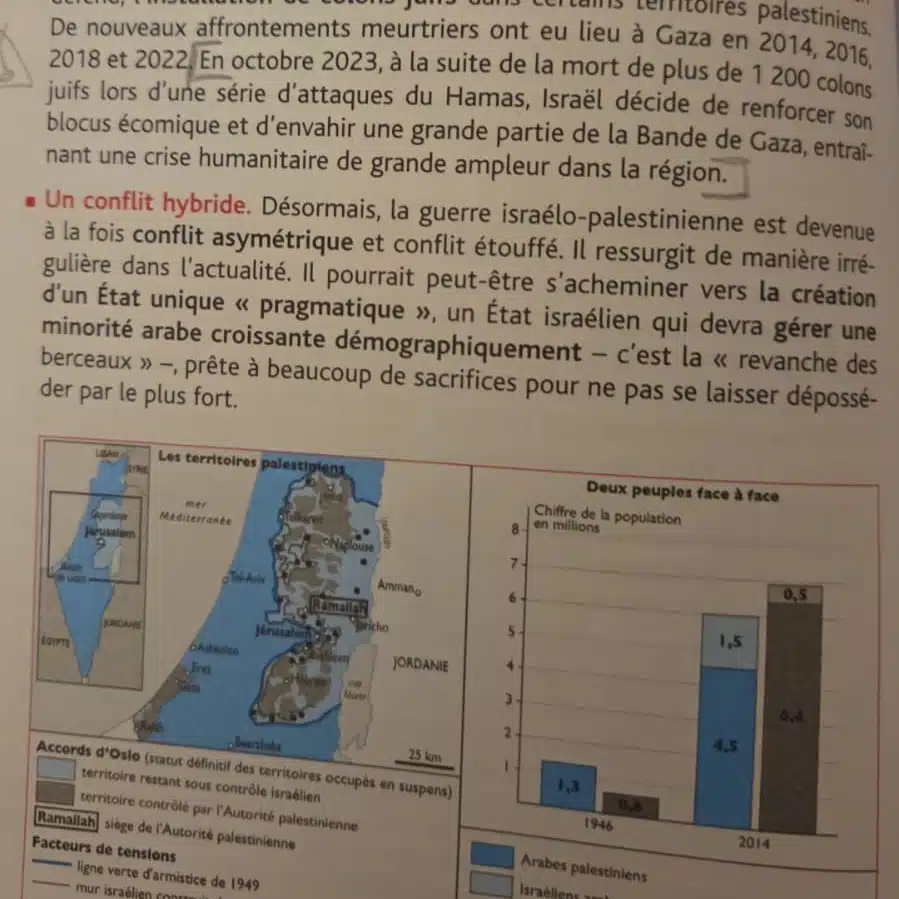|
Getting your Trinity Audio player ready...
|
A horrifying arson attack at the Adass Israel Synagogue in Melbourne, Australia, early last month drew global attention to a new surge of antisemitic hatred targeting the Australian Jewish community. The motives behind these incidents span the ideological spectrum, underscoring the complexity of the threat and the urgent need for a firm and decisive response from Australian authorities to protect Jewish life and property.
The Antisemitism Research Center (ARC) by CAM has been monitoring developments in Australia closely. While the ARC does not purport to document every incident of antisemitism in Australia, the data generated by the incidents the ARC has captured indicate a disturbing trend.
According to the ARC’s data, antisemitic incidents in Australia more than doubled from week-to-week in mid-January, with increasing manifestations of violence. During the week of January 9-16 alone, the ARC tracked the following incidents:
- The defacement of a South Sydney synagogue with a swastika and the phrase “Hitler on Top”
- The vandalism of a second Sydney synagogue and a nearby home with swastikas (authorities later added that the synagogue was also the target of an attempted arson)
- The spray-painting of “Gas the Jews” and swastikas at train station in Sydenham, a Sydney suburb
- The vandalism of a Hamilton pharmacy with swastikas
- Anti-Israel demonstrators shouting “Go back to Germany,” chanting “All Zionists are terrorists,” and throwing coins at the counter-protesters (invoking the classical stereotype of Jewish greed)
- The public display of a Nazi salute in Balmain
- The display of a banner reading, “Nurses & Midwives Against Genocide” at a Sydney protest.
- The discovery that the newly-appointed principal of New Madinah College had posted antisemitic comments online, including one saying, “May Allah destroy the ZIONIST TERRORIST REGIME!” alongside the hashtags “#StopGenocide” and “#ZionistTerrorists”
This ominous trend hate did not abate over the past week, with monitored incidents from January 17-23 including:
- A Sydney home formerly owned by Alex Ryvchin, the co-chief executive officer of the Executive Council of Australian Jewry (ECAJ), was vandalized with red paint, and two cars outside were set on fire. One of the cars had “F*ck Jews” spray-painted on it.
- A childcare center in Sydney’s Maroubra neighborhood was set ablaze, and “F*ck the Jews” was found spray-painted nearby.
- A 44-year-old Western Sydney resident was arrested by federal authorities for posting online death threats against Australian Jewish Association (AJA) President David Adler.
- A sign reading “Zionism is Genocide” was seen at an anti-Israel rally in Melbourne.
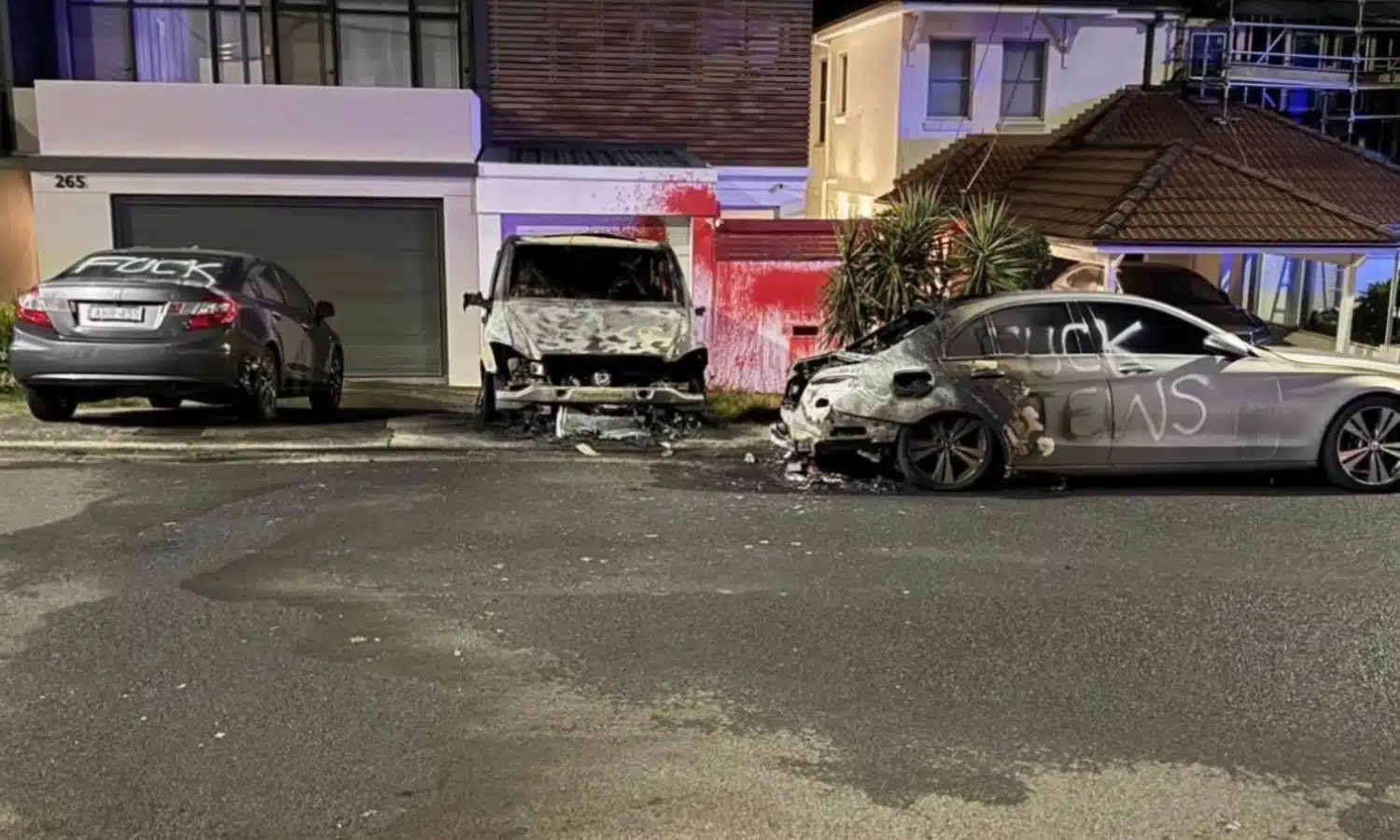
In total, the ARC recorded 11 antisemitic incidents in Australia from January 9 to 16, yet only 12 in the prior three weeks combined. This marked a 120% increase from the previous week’s total, a 175% increase from two weeks prior, and a 267% increase from three weeks earlier.
The Jewish community of Australia — which was estimated to number 117,200 in a 2023 Jewish Agency report — accounts for approximately 0.7% of the global Jewish population but faced approximately 10% of all antisemitic incidents worldwide the ARC recorded from January 9-16 (11 of 109).
Incidents have not just escalated in quantity, but in severity, as the prevalence of vandalism and violence or the threat of violence has also increased. While the ARC recorded fewer incidents from January 16-23 than the previous week, the nature of the incidents was more destructive and dangerous than before. Whereas four weeks ago all three incidents recorded were hate speech-related, this past week only one of the four monitored incidents was hate speech, while two were incidents of violence and the other an act of vandalism.
The ideologies fueling recent antisemitic incidents in Australia are multifaceted, and in some cases unclear, highlighting the profound challenge Australian Jews face and the pervasiveness of the problem across the ideological spectrum. Of the 11 incidents monitored by the ARC from January 9-16, four were classified as far-right, four as far-left, one as Islamist, and two as unattributable. Of the four incidents monitored by the ARC from January 16-23, three were classified as unattributable while one was classified as far-left.
An example from January 10 underscores the blurring of the ideological lines motivating antisemitic incidents, with extremists of all backgrounds finding common ground and invoking the same tropes to propagate their hatred. The graffiti scrawled on the South Sydney synagogue depicted a swastika and the words “Hitler on Top,” which at first glance would appear to indicate a far-right motivation. Yet the inclusion of the phrase “Allahu Akbar” added an Islamist element, serving as a testament to a shared bond of antisemitism that links the far-right and radical Islam.
The symbiotic relationship between the far-right and radical Islam dates in history at least as far back as the 1930s, when Arab leaders associated with the Muslim Brotherhood, with Grand Mufti of Jerusalem Hajj Amin al-Husayni most prominent among them, forging an alliance with Adolf Hitler and Nazi Germany based on Jew-hatred and disdain for the liberal Western democratic order.
An anti-Israel rally in Melbourne two weeks ago highlighted additional ambiguities in determining the ideological roots of certain antisemitic incidents. At the event, far-left activists shouted hateful antisemitic slogans, common in their circles, such as “All Zionists are terrorists” and “Go back to Germany.” Yet, they also threw coins at Jewish counter-protesters, invoking an antisemitic trope that Jews are greedy and money-obsessed, a common far-right trope. The far-left’s contemporary use of traditionally right-wing rhetoric and symbols to disseminate antisemitism is a worldwide phenomenon – for instance, far-left and Islamist activists have increasingly wielded the swastika as a cudgel against Jews and Jewish institutions, equating it with the modern-day State of Israel’s Star of David.
As a former British colony, Australia inherited the antisemitism ingrained in the Western tradition, Australian scholar Dr. Suzanne Rutland has argued, noting that “by the late 19th and early 20th centuries, anti-Jewish sentiments could be found across the political spectrum.” The right, sympathetic to European fascism, advocated for nativist policies restricting Jewish immigration and propagated the discredited “Protocols of the Elders of Zion.” Meanwhile, at the behest of the Soviet Union, Australian leftists promoted virulent antisemitism masquerading as anti-Zionism in the aftermath of the Six-Day War in 1967.
In incidents from the 1970s eerily reminiscent of the current crises on college campuses across the globe, the Australian Union of Students (AUS) advanced anti-Israel resolutions, and “members of the Jewish Students movement who campaigned against these resolutions were physically attacked,” Dr. Rutland recalled. Amid the most recent conflict between Israel and Hamas, this sentiment has roared back, resulting in record-breaking antisemitic incidents in the country.
Indeed, data from the Executive Council of Australian Jewry (ECAJ) showed an “unprecedented” 316.5% increase in antisemitism in 2024 from the previous year. Driven by anti-Israel sentiment, antisemitism has skyrocketed as the norms that previously regulated such hateful impulses have eroded, and, as the ECAJ pointed out, “the Hamas massacre in Israel on 7 October 2023 acted as a signal, a green light, for many Islamists and Left-wing extremists that it was open season on Jews.”
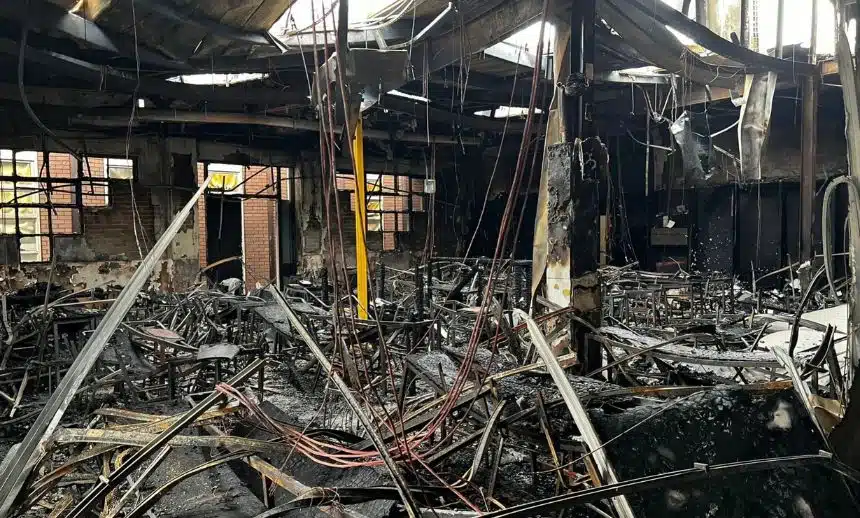
The increasingly violent manifestations of antisemitism in Australia are clear, and many Jews in Australia feel abandoned. Australian authorities must take action to address this growing problem before the situation gets even worse. Banning the terrorist Jibril Rajoub from entering the country, cracking down on public displays of the Nazi salute or support for designated terrorist organizations, and appointing the country’s first antisemitism special envoy were steps in the right direction, but much more needs to be done.
In the wake of the most recent shocking antisemitic attacks, the Australian government organized a meeting to consider responses to the ongoing crisis. Afterward, the government announced it would actively investigate what role foreign entities were playing in fomenting these crimes and establish a national antisemitism database.
These efforts are laudable, but Australian authorities should also heed Special Envoy Jillian Segal’s recent proposals: relocate anti-Israel protests from the heart of Australian cities, strengthen hate crime laws to ensure they are effective and enforceable, and lead by example in speaking out forcefully against antisemitism.
A commitment to democratic values, such as liberty, equality, opportunity, and mutual respect, is a key reason why Australia and other Western countries have been relative safe havens for Jews in recent decades. Rising antisemitism threatens to sever this social fabric, and strong and fearless leadership is required to reverse the trend and ensure that those who promulgate the world’s most enduring form of hatred are marginalized and held accountable for their transgressions.

